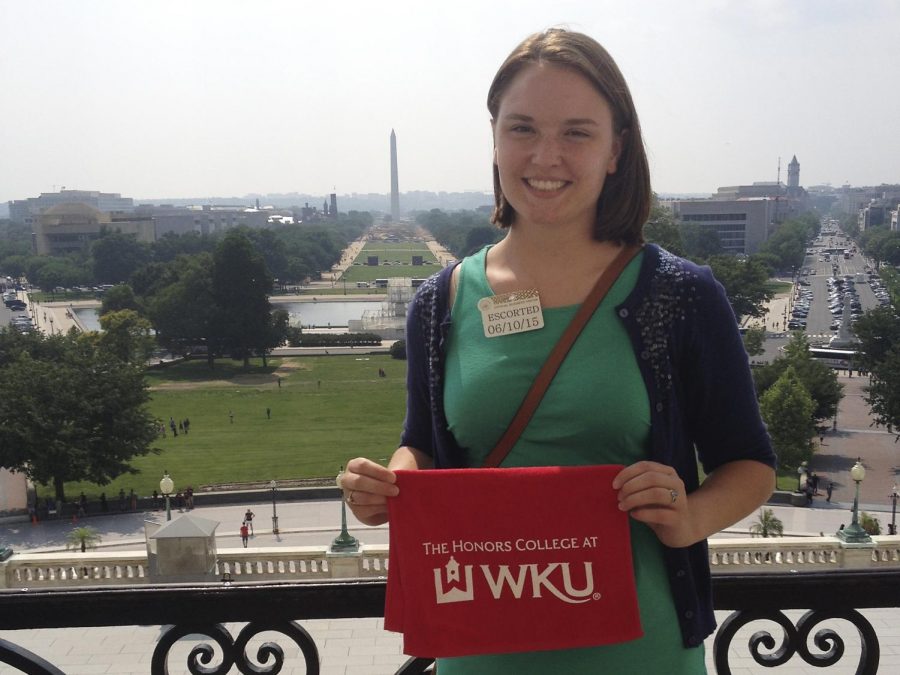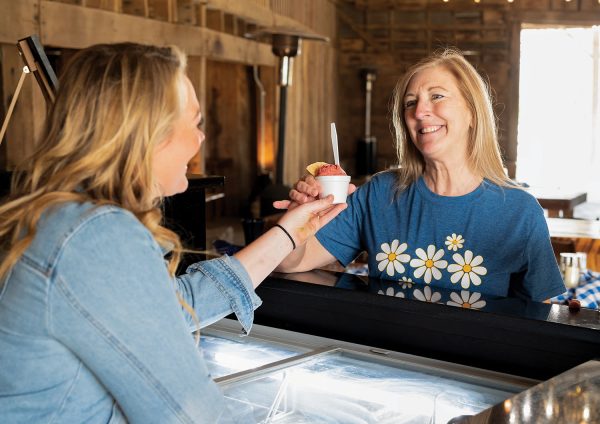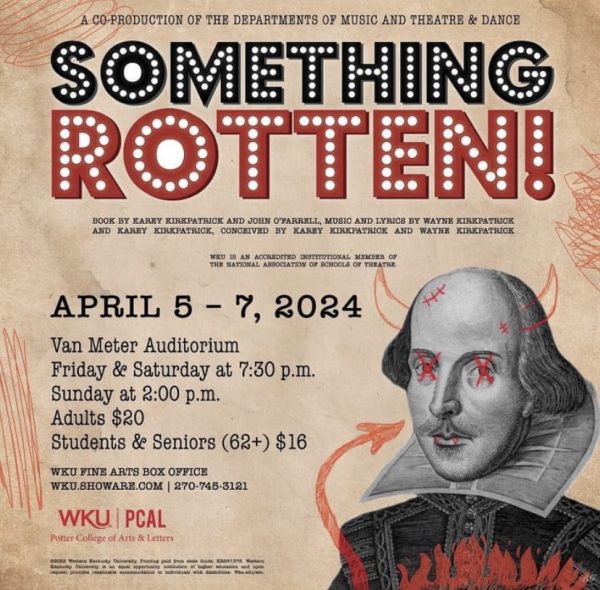Study Away offers a nontraditional academic experience
October 6, 2015
For students who desire off-campus academic experience but are not quite ready to leap across the pond, WKU offers a program for students to study away in the U.S. and its territories.
For Maggie Sullivan, a sophomore from Louisville, participating in the Study Away program in Washington, D.C., helped her gain the experience and ambition to pursue a study abroad program in the spring 2016 semester.
“Studying away is a great way to get your feet wet with the off-campus academic experience,” Sullivan said. “It shared many common elements with studying abroad but with the conveniences of being in my country of citizenship.”
The Office of Study Away aims to provide students and the community differing perspectives of America and the world through innovative teaching and learning opportunities.
Thanh Tran, an intern at the Study Away office, said most students believe the experience is the best part of the program.
“Sometimes it’s more costly that they travel by themselves than if they study with the program,” Tran said. “They could study more by the program and find different fields of interest and get actual experience.”
The Office of Study Away offers many different options for students who want to participate. These include faculty-led study abroad programs, the American Traveler program and the National Student Exchange.
In each of the programs, students are able to learn outside the classroom as well as explore a new location — all while earning at least three credit hours.
“I think one of the main challenges facing study away courses is making sure they are academically rigorous,” Alexander Olson, assistant professor of honors and affiliated faculty in history and leader of the Citizen and Self trip in Washington, D.C., said in an email.
“As a university, we should not be in the business of sponsoring educational tourism. At the same time, the learning in a study away program goes way beyond the formal assignments and includes things like independently navigating a new city,” he said. “The key is to find creative ways to balance these different kinds of learning.”
The Study Away program offers a more flexible teaching style and allows the students to gain a new understanding through experiential learning. During the Citizen and Self program in Washington, D.C., students visited both tourist and nontraditional attractions. They also participated in activities such as competing in a city-wide scavenger hunt and listening to poetry at a local bookstore.
“We did have a few assignments and reading, but most of the learning took place outside in the city,” Sullivan said in an email.
Going through the Study Away program is generally cheaper than traveling to the same places outside of the program, according to Tran.
Chaney Rose, a Bowling Green sophomore who participated in the faculty-led trip to New York City this past summer, said Study Away seemed like a stepping stone to studying abroad in the future.
“Studying away was an affordable option and seemed good for the relatively short trip,” said Rose in an email.
During her trip, faculty and students lived together in the same house. According to Rose, studying away on a faculty-led trip helped create better connections and relationships with teachers.
“The best part [of the trip] was the small, close-knit class and the close relationship we had with our professor,” she said. “The trip was structured in a very flexible way, so as students we had a lot of control over what we did, studied and discussed as a class.”
Faculty members will be leading students to Hawaii, New York City, Puerto Rico and other locations for the upcoming winter and spring terms. For more information, visit the Study Away office’s Web page at wku.edu/studyaway.














![Students cheer for Senator at Large Jaden Marshall after being announced as the Intercultural Student Engagement Center Senator for the 24th Senate on Wednesday, April 17 in the Senate Chamber in DSU. Ive done everything in my power, Ive said it 100 times, to be for the students, Marshall said. So, not only to win, but to hear that reaction for me by the other students is just something that shows people actually care about me [and] really support me.](https://wkuherald.com/wp-content/uploads/2024/04/jadenmarshall-1200x844.jpg)




![Megan Inman of Tennessee cries after embracing Drag performer and transgender advocate Jasmine St. James at the 9th Annual WKU Housing and Residence Life Drag Show at Knicely Conference Center on April 4, 2024. “[The community] was so warm and welcoming when I came out, if it wasn’t for the queens I wouldn’t be here,” Inman said.](https://wkuherald.com/wp-content/uploads/2024/04/smith_von_drag_3-600x419.jpg)






